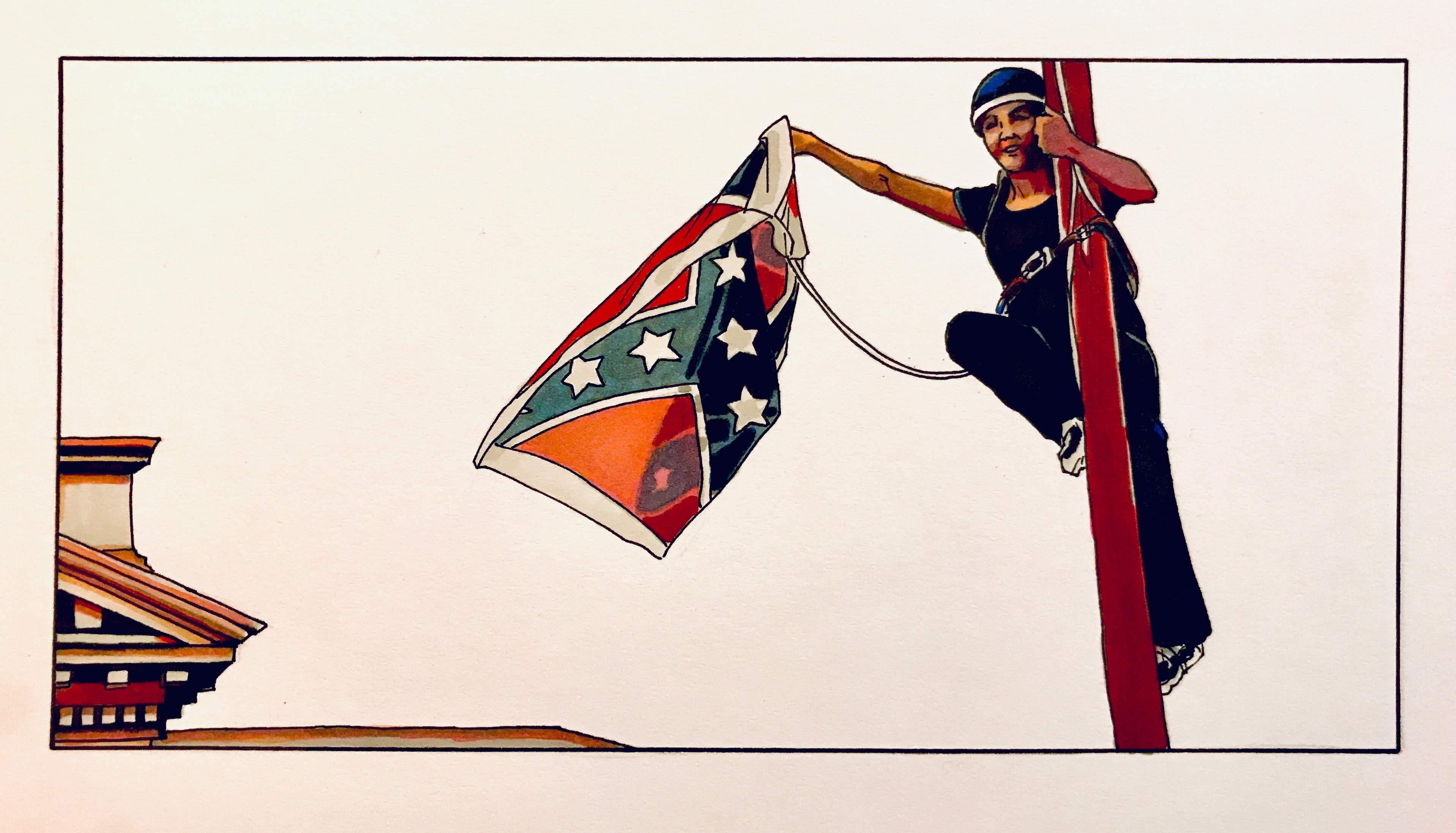In 2014, Tau Kappa Epsilon at Arizona State University threw a controversial Martin Luther King Jr. Day party—where students served watermelon, wore oversized basketball jerseys, flashed gang signs, and wore Blackface makeup—that resulted in the fraternity being permanently suspended. A decade later, racially charged events are still making the news, many far more severe than racist fraternity misbehaviors.

The tragic case of Breonna Taylor in 2020 became a national rallying cry when the young Black woman was fatally shot by police in her Louisville home—a grim testament to the ongoing plague of police violence against African Americans. This incident, among others, fueled the Black Lives Matter movement, thrusting the systemic racism embedded in law enforcement into the limelight.
In another harrowing chapter, the horrors of the “Mississippi Goon Squad” surfaced in 2023. This group of law enforcement officers became notorious for their brutal and racially motivated assaults on Black individuals. Their actions, marked by a chilling disregard for human dignity, spotlighted the deep-seated racism that undergirds and still permeates the American policing system.
Events like these call for us to speak up and stand against injustice, or demonstrate civil courage, whether we are community leaders or simply bystanders. This kind of courage is an essential element for personal and societal progress because it directly challenges the indifference that lets injustice thrive. By making a stand, we not only question the status quo but also inspire others to do the same, setting off a chain reaction of change. Through this collective courage and ethical boldness, we pave the way for dismantling systemic inequalities, moving us closer to a world defined by fairness and justice.
Unfortunately, a study we conducted in 2020 exposed the difficulties White Americans have demonstrating civil courage around issues of racial justice. Our findings suggest we need to find ways to prepare for difficult conversations so we can contribute to eradicating racism rather than perpetuating it.
When we fail to speak up
In our research study, we surveyed White participants about their attitudes toward race, how much they value fairness and equality, and how they thought they would respond in a hypothetical situation that called for allyship and support. Then, they actually talked one-on-one with another White student (who was secretly someone from our team instructed to agree with them) about racially charged news events—including the incident with Tau Kappa Epsilon. Those conversations were analyzed to assess language and behaviors.
Despite knowing their conversations were being recorded and observed by a Black student, and despite their stated intentions around anti-racist beliefs, participants failed over and over again to speak up for racial justice.
The vast majority were quite tepid in their responses, with only 16% demonstrating what could be classified as “high allyship” for this scenario. Even though they knew the right thing to say—based on their responses to the hypothetical scenarios—they didn’t say it in real life. It just felt too risky and uncomfortable in practice. This is how people collude in the perpetuation of racism.
When it comes to standing up against racial injustice, people often fail to act, especially if it means inconvenience or potential social costs. This failure is rooted in our natural tendency to stick with our own familiar group of people. Among White people, solidarity involves an unspoken agreement to protect their advantages and avoid discomfort by not confronting racist behavior. Studies find that even after anti-racism training, White people struggle to maintain their commitment to allyship. This in-group solidarity keeps White people silent in the face of racism, fearing disapproval.
Correspondingly, for people of color, seeing racism happening in real time also leads to silence, not due to in-group solidarity but out of fear of reprisal. These dynamics create a critical barrier to bringing change to racist systems.
No courage without risk
Risk is an inherent facet of life—a force that propels us into uncharted territories, pushing the boundaries of comfort and familiarity. And although whole professions are dedicated to helping people reduce risk, risk is not always a bad thing. Defined as the uncertainty of an event’s outcome, risk is often the catalyst for real growth, from personal development to societal progress.
In the realm of civil courage, risk takes center stage, since we are navigating social challenges without an assured outcome. Standing up against social norms poses a high risk of rejection from the in-group. It is through these risks that true bravery emerges, as we face the possibility of rejection, discomfort, and harm.
In 2015, amid a small crowd of onlookers, Bree Newsome, a 30-year-old African American woman, scaled the flagpole on the South Carolina State Capitol grounds and took down the Confederate flag, a symbol of anti-Black racism. From the top of the pole, she called out, “You come against me in the name of hatred, repression, and violence. I come against you in the name of God.” For this act of courage, she was arrested.

With civil courage, there’s a fundamental truth—no risk can be entirely safe. Genuine growth calls for embracing risks, as more significant risks often yield greater personal development. It’s akin to a tightrope walker facing the peril of falling. To truly exercise bravery, the walker must forego the safety net, allowing the risk to be real and present. It’s this very risk that fuels the growth of conviction and courage.
Consider the parallel with parenting. Even as toddlers, if children don’t risk falling, they don’t learn to walk. Shielding our children from the reality of risk only denies them the chance to learn and grow. Failure, an inherent consequence of taking risks, is a crucial part of healthy development.
Like learning to walk, character development takes practice. By exposing children to the emotional risks of discomfort or rejection, we foster resilience and prevent the development of fragile psyches. This concept extends to those in positions of power—a leader who never faces risks or challenges becomes stagnant and ultimately fears losing their control. Voluntarily embracing risks is a concept incongruent with the urge to retain power.
How to cultivate civil courage
The cultivation of civil courage, especially in confronting racial injustice, requires a multifaceted approach that encourages both awareness and actionable steps toward change. This takes time, and ideally happens within a larger environment that supports this kind of work.
It starts with education—understanding the historical and systemic roots of racism and recognizing the various forms it takes, from overt acts of racial violence to subtle microaggressions that perpetuate an environment of exclusion and inequality. This knowledge forms the foundation upon which civil courage can be built, as it equips individuals with the understanding necessary to identify and challenge instances of injustice. For this kind of education, you might read a critical history of our country, or about the lives of those who showed civil courage, like Martin Luther King Jr. and Malcom X.
Finding spaces (like anti-racism affinity groups) for open dialogue and honest reflection on one’s own biases is another crucial step. These spaces should encourage individuals to share their experiences and perspectives on racism and allyship, fostering an environment of empathy and mutual respect. Such dialogues can help dismantle the barriers of fear and discomfort that often hinder people from speaking out against racism. They provide a supportive community that empowers individuals to take risks and make stands against injustice, knowing they are not alone in their efforts.
Practical skill-building that focuses on how to engage in difficult conversations about race, how to recognize and address one’s own biases, and how to effectively intervene in situations of racial discrimination is essential. Our recent paper on this topic in the American Psychologist offers 10 strategies for growth, emphasizing that allyship involves consistent, ongoing effort rather than sporadic acts of support. By practicing these skills in increasingly challenging environments, individuals can gain the confidence and competence needed to act with civil courage in real-world situations. These exercises include:
- Mapping relationships: Make a diagram of your support network and reflect on the diversity or lackthereof.
- Who is lucky? Think about chance versus effort, and how your privileged identities have facilitated success in your life.
- Honestly assess your dislikes.
- Talk about race with a colleague of a different race, and also share your own experiences.
- Visit a place of worship of a race and ethnicity different from your own to understand what it is like to be a racial and cultural outsider.
- Assess your own racial identity, and identify your stage of development on the continuum
- Defend your anti-racist convictions in a hostile online forum.
- Challenge the status quo in the workplace, discussing structural racism that creates unequal opportunite for certain racial groups.
- Call out the bigoted behavior of colleagues and friends.
- Choose to live a life that includes more people who are different from you, racially and in other ways.
Mentorship and role modeling also play a vital role in cultivating civil courage. Seeing others—especially those within one’s own community—stand up against racism can inspire and motivate action. Mentors can provide guidance, support, and accountability, helping mentees navigate the challenges of becoming effective allies. This relationship fosters a culture of learning and growth, where mistakes are seen as opportunities for learning rather than reasons for retreat. Mentors should be both White allies and people of color.
Finally, cultivating civil courage means recognizing that inaction contributes to the perpetuation of racism and that everyone has a role to play in dismantling systemic inequalities. As such, a deep sense of personal responsibility for taking action is key. Action involves challenging the societal norms that normalize silence in the face of injustice and advocating for policies and practices that promote equity and inclusion.
In essence, cultivating civil courage is an ongoing journey that requires introspection, education, and action. It demands that we step outside our comfort zones, confront our fears, and engage in the work of building a more just and equitable society. Through sustained effort and commitment, we can bridge the gap between who we really are and who we want to be, moving closer to realizing a world where racial justice is not just an ideal but a lived reality.







Comments